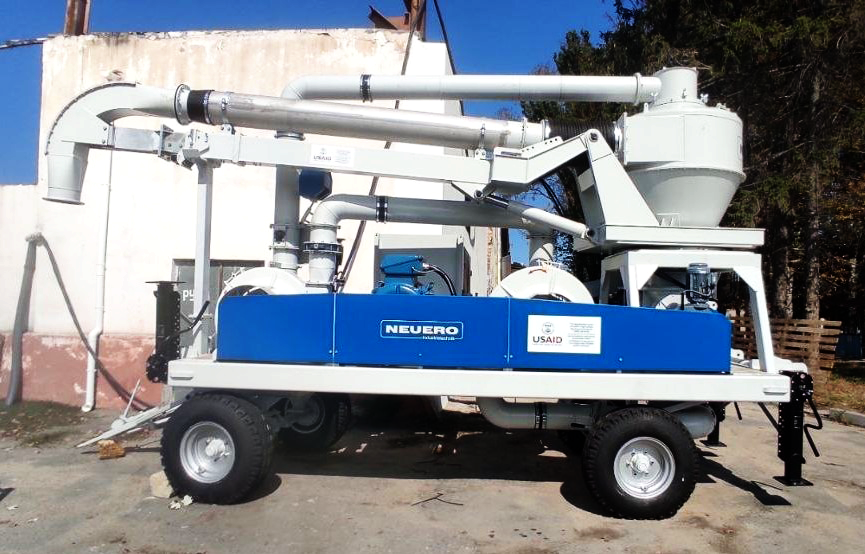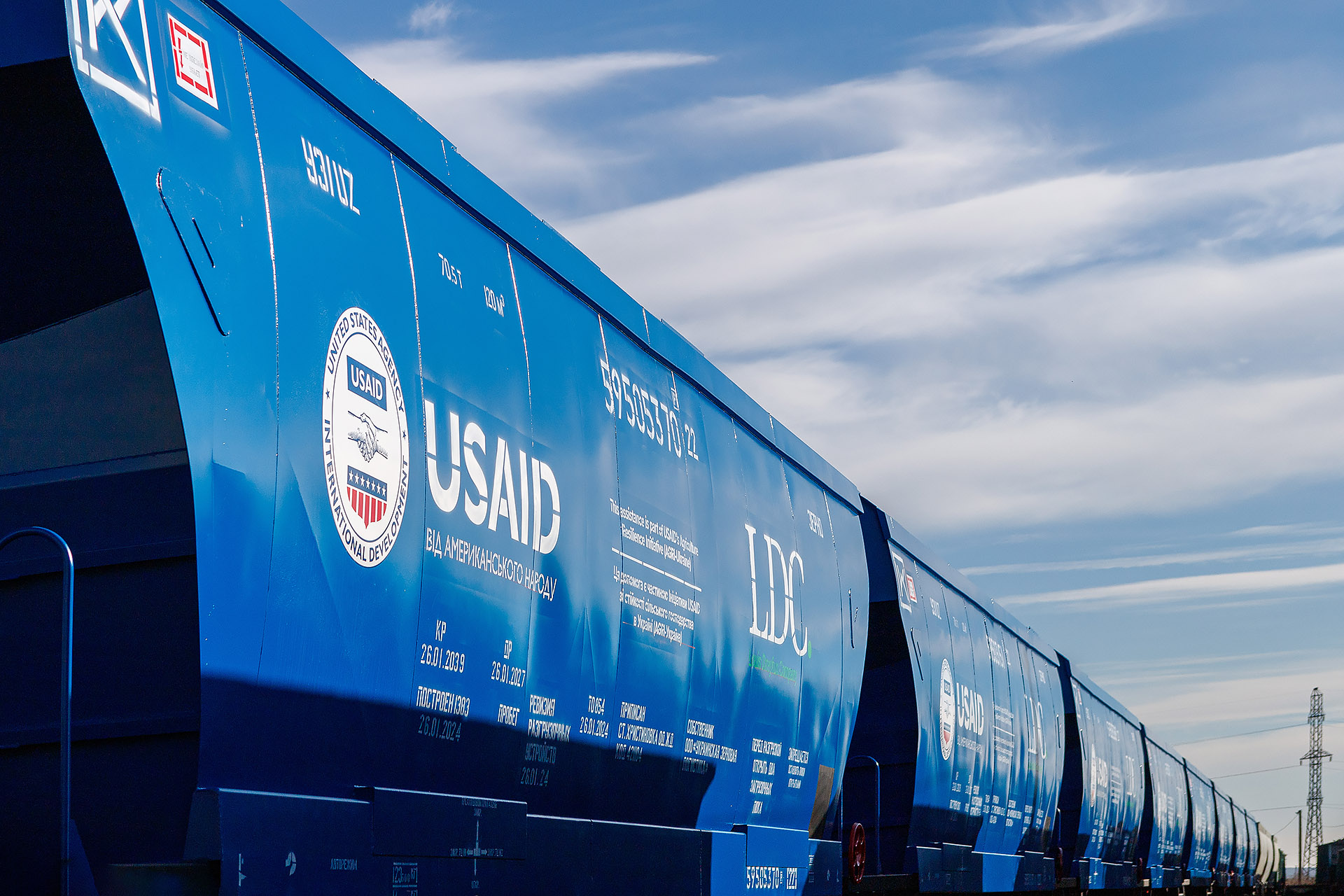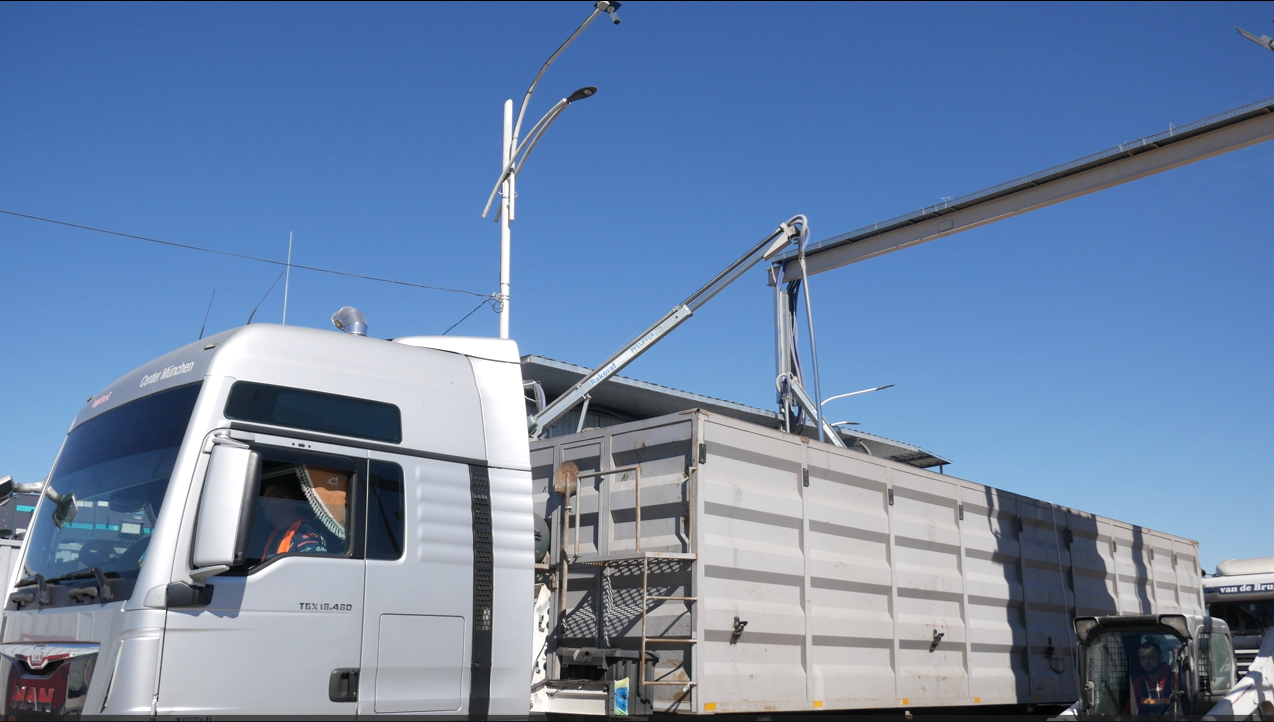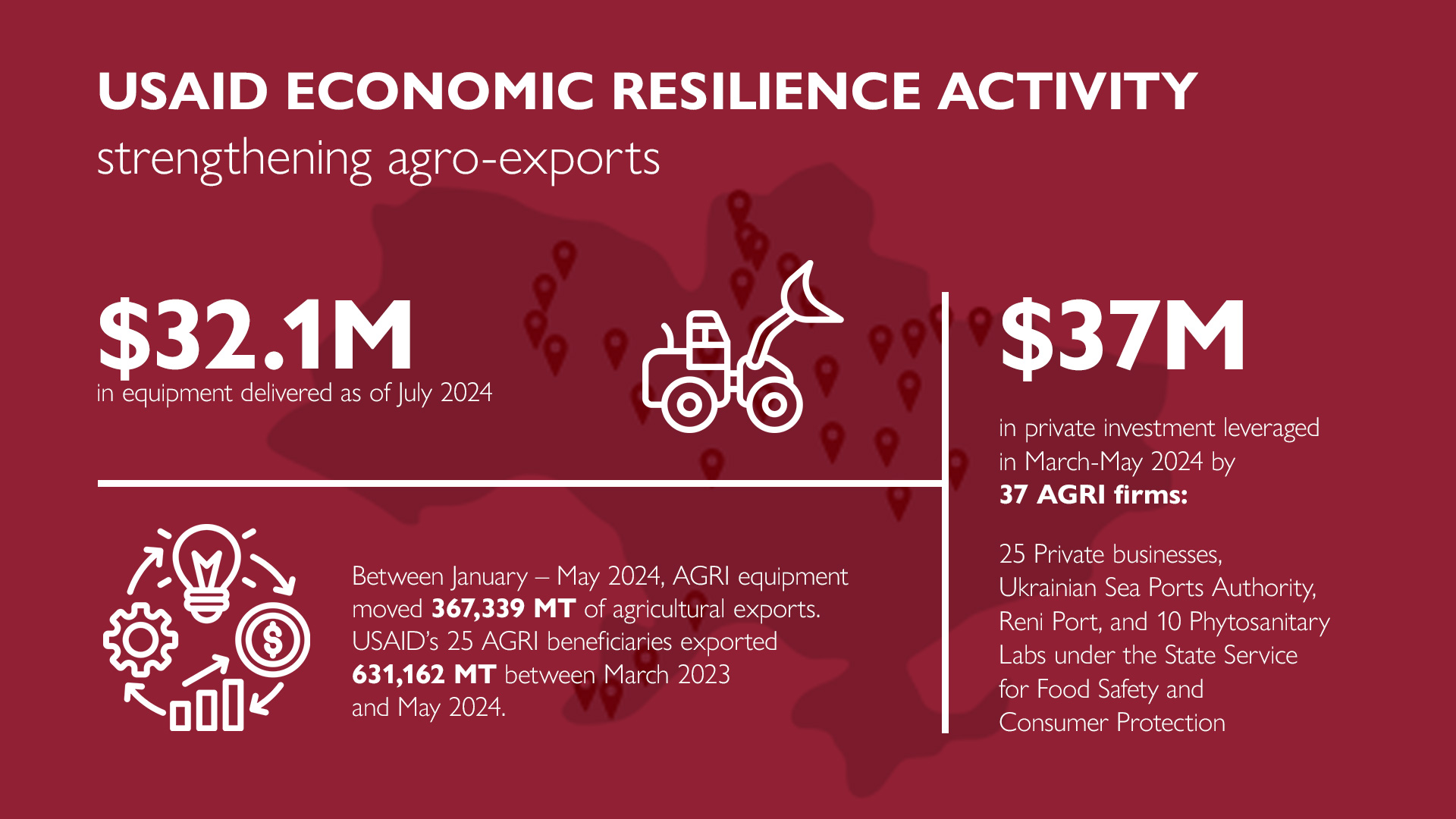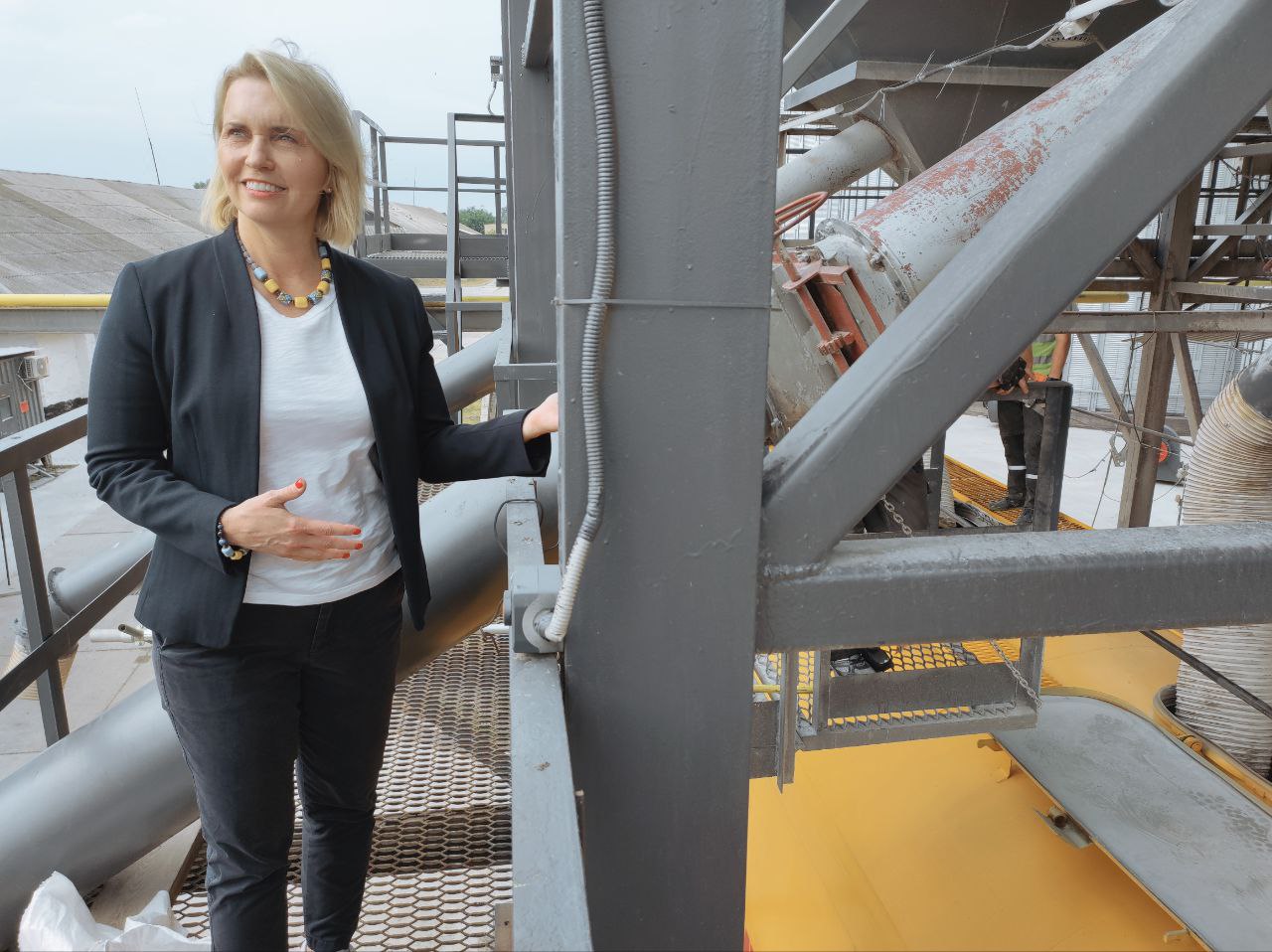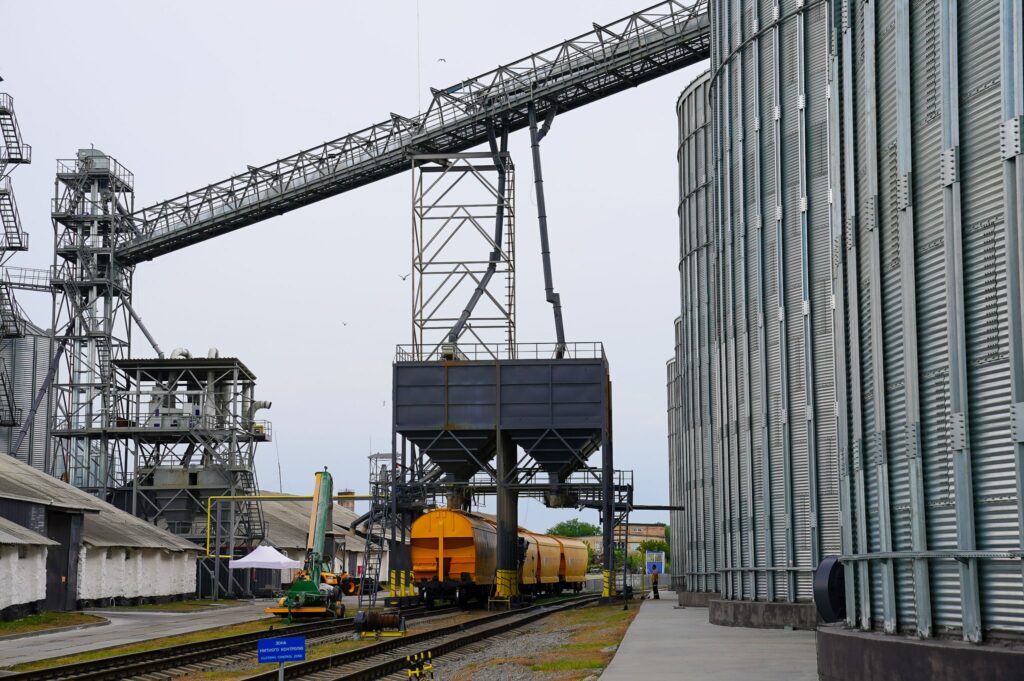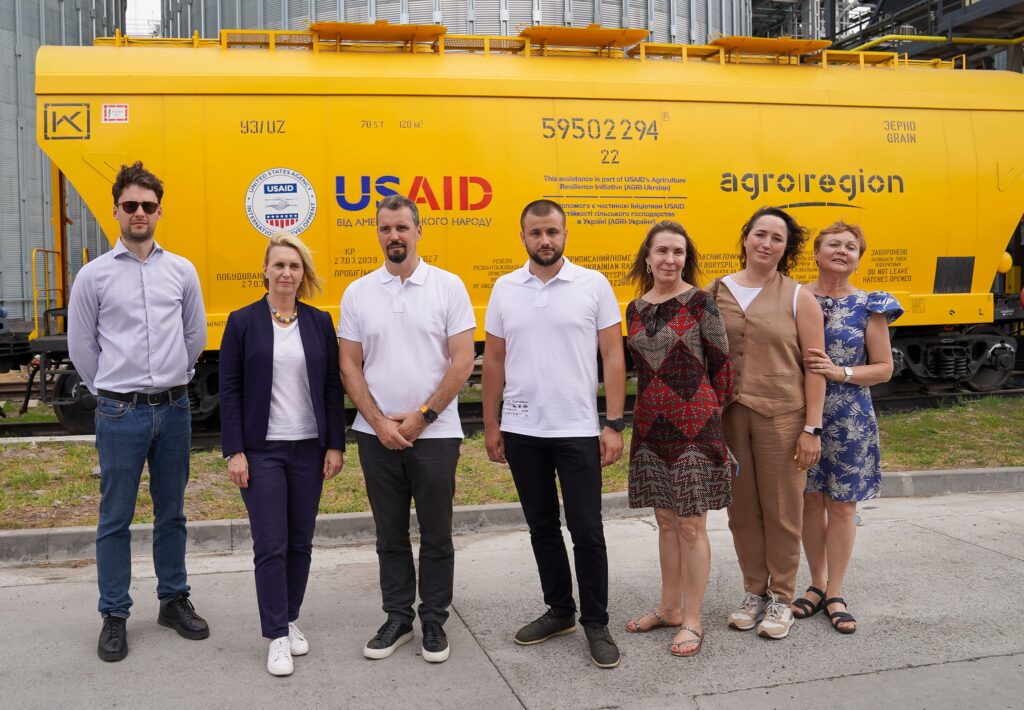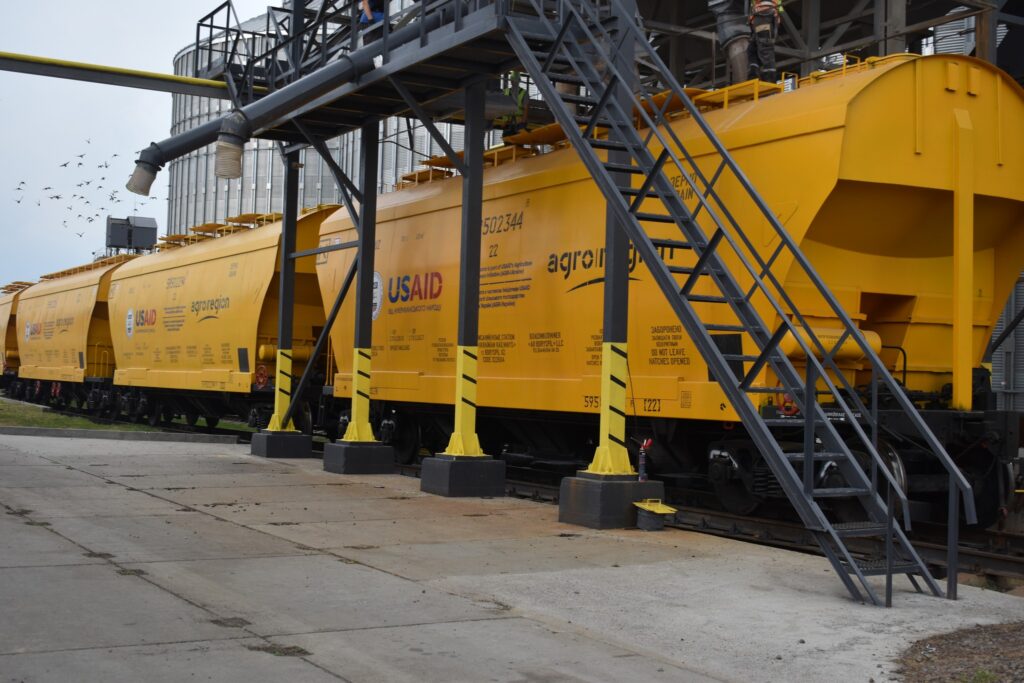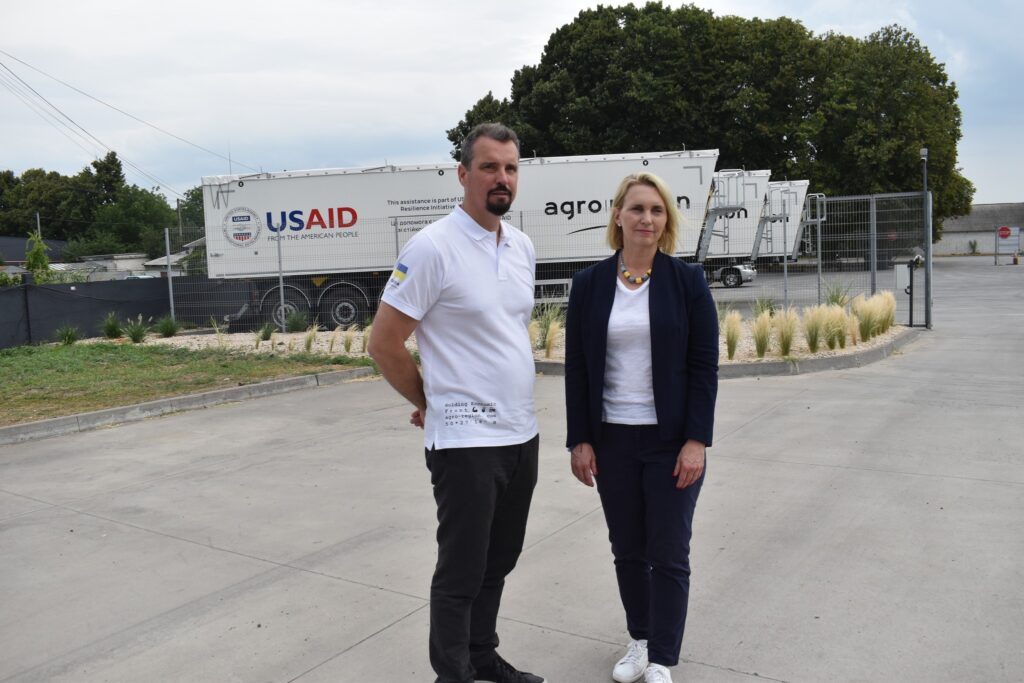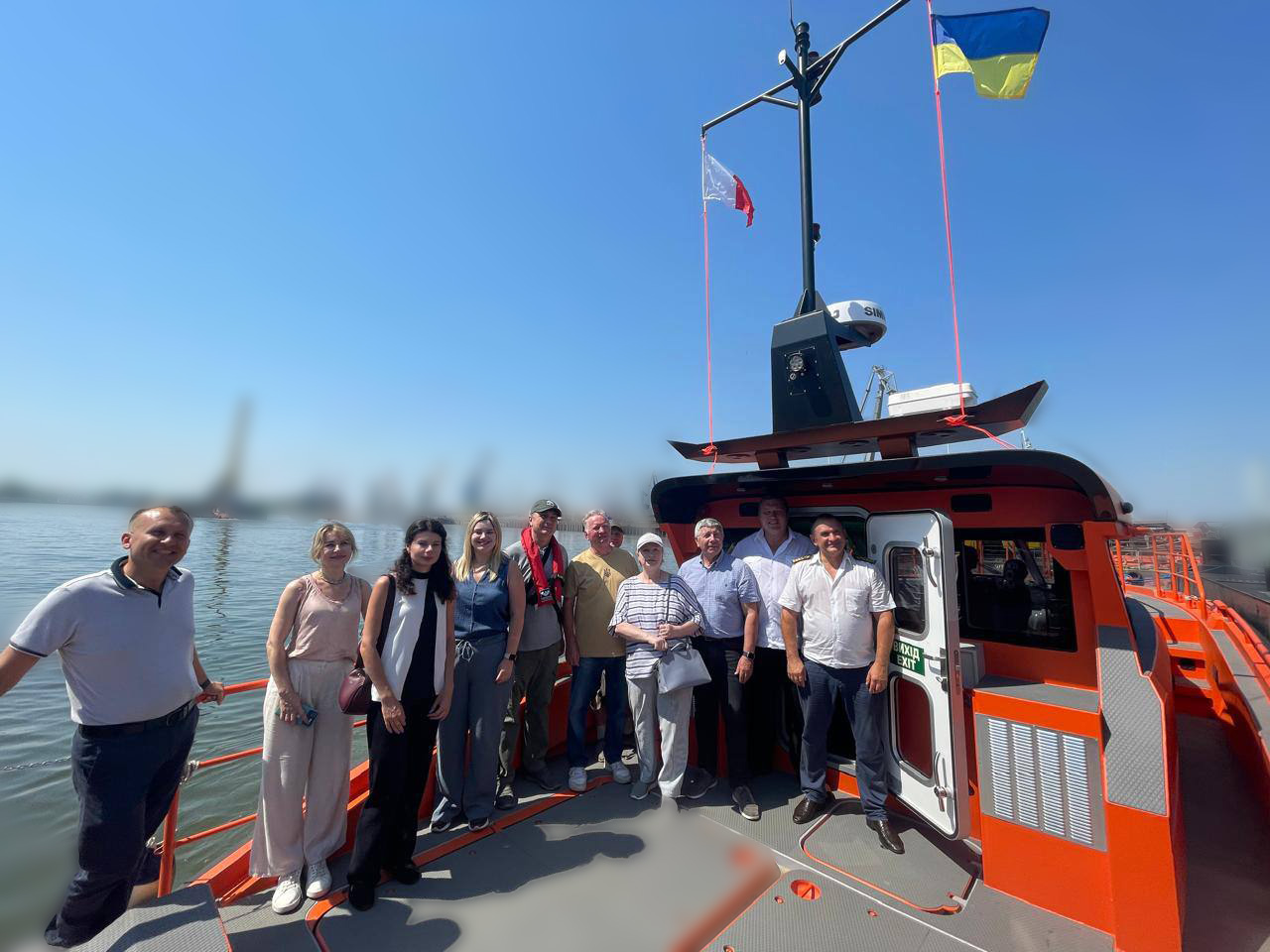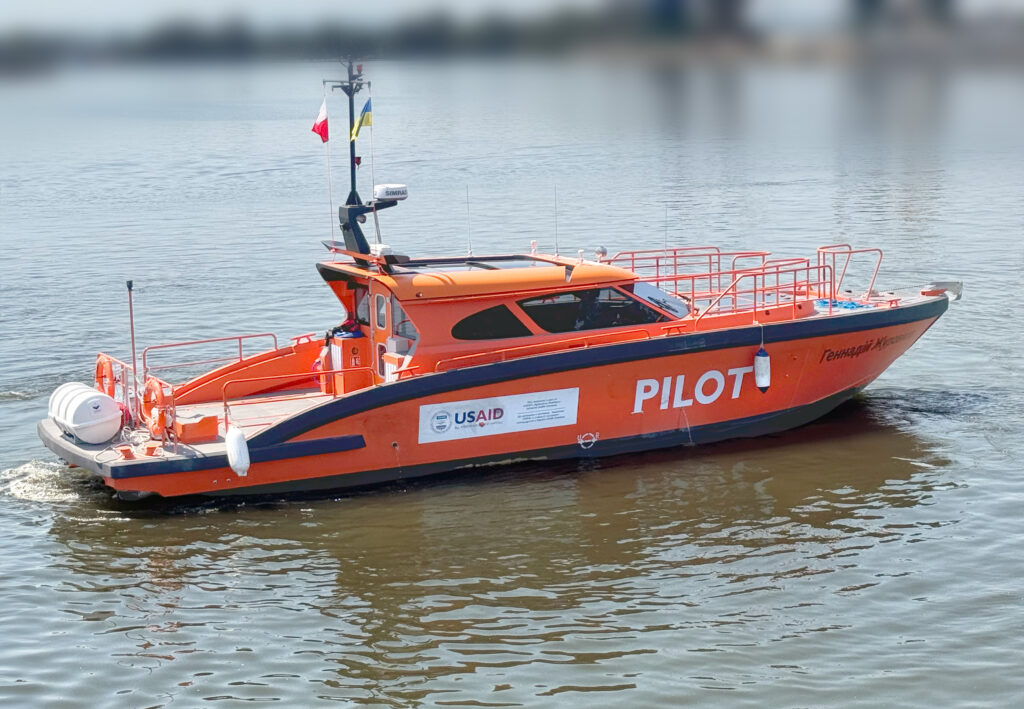On September 4, USAID’s Economic Resilience Activity (ERA) delivered a pneumatic transshipment loader, to the agricultural logistics company, Ascet Shipping.
The loader will increase Ascet Shipping’s competitiveness in the logistics services market by reducing the cost of moving grain by approximately 10% and increase transshipment capacity by 80-120,000 tons per year. The new equipment will enable Ascet Shipping to give their customers—agro traders—a lower tariff that in its turn will influence more favorable prices for farmers.
The loader moves grain more than 100 meters and, if necessary, lifts to a height of 30 meters. Ascet Shipping’s customers transport grain by rail, therefore the logistics company needs the loader to move grain from wagons to load it into trailers. The trailers move the grain the last kilometer to the berths, where grain is put on ships for export. Ascet Shipping will purchase a 100 mm four-core 70 meter power cable to use for power to the loader.
Ascet Shipping was founded in 2007 and in 2021 was the leading port operator in Mariupol, Berdiansk, Kherson, and Mykolaiv with their own barge fleet and storage capacities of more than 100,000 tons. Despite the loss of major assets, they relaunched, and now operate in all other ports of Ukraine. Ascet Shipping provides transport, transshipment, expedition, fumigation, and tax clearance services. Their exports reached 500,000 tons of agricultural commodities in 2022, and about 800,000 tons in 2023.
Background: Assistance to agricultural producers and infrastructure companies is part of the Agriculture Resilience Initiative (AGRI) – Ukraine, implemented by the United States Agency for International Development (USAID). It aims to help Ukraine increase its capacity to produce, store, transport, and export grain.
More information about the “AGRI-Ukraine” initiative is available following the link:
↗ https://www.usaid.gov/ukraine/agriculture-resilience-initiative-agri-ukraine
